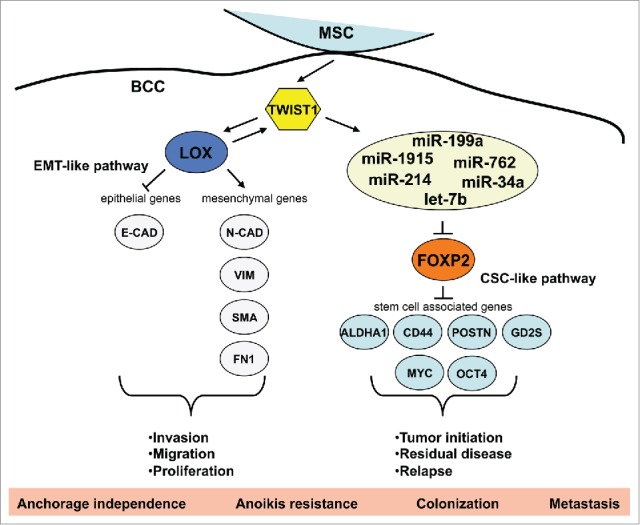Figure 1.

Divergent pathways in MSC-supported metastasis. Tumor-associated mesenchymal stem/stromal cells (MSCs) trigger TWIST-dependent pathways in breast cancer cells (BCCs). These pathways, mediated by lysyl oxidase (LOX) or the indicated microRNA (miR) network, may alternate temporally in BCC-contacted cells or may represent pathways that are triggered in separate BCC populations as they react differentially to MSC influences. The collaboration of such epithelial-mesenchymal transition (EMT)-like and cancer-stem-cell (CSC)-like events leads to overall enhancement of tumor metastasis. ALDHA1, aldehyde dehydrogenase A1; E-CAD, E-cadherin; FN1, fibronectin; GD2S, GD2 synthase; N-CAD, N-cadherin; OCT4, octamer-binding transcription factor 4; POSTN, periostin; SMA, smooth muscle actin; VIM, vimentin.
